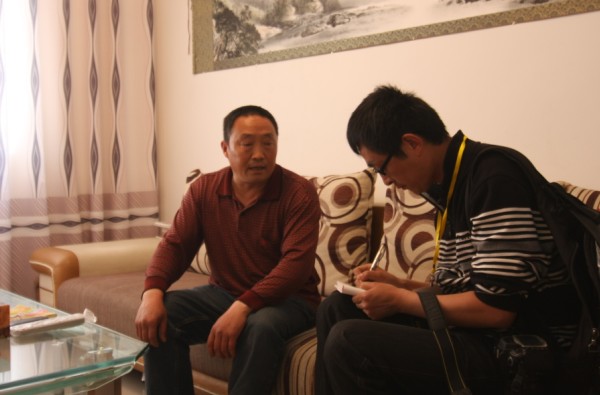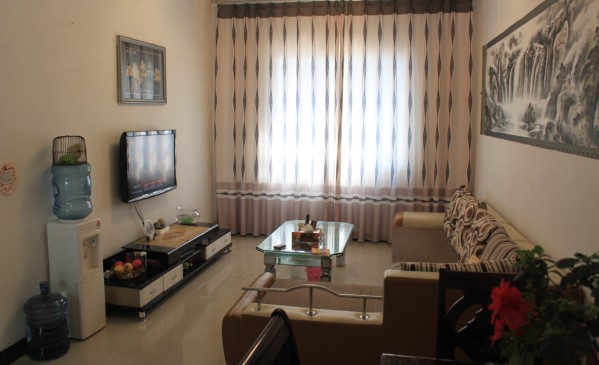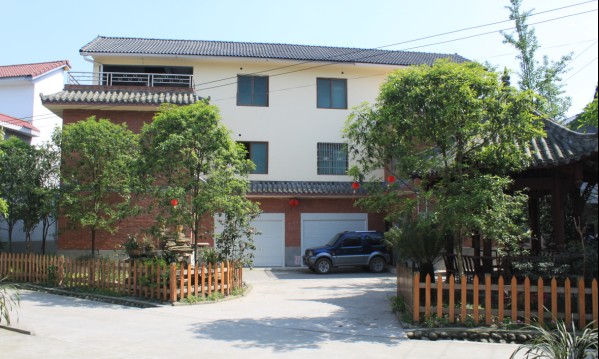From Chinese Media
A win-win land swap plan in quake zone
Updated: 2011-04-26 14:35
By Yan Weijue (chinadaily.com.cn)
Before October 2009, when Wugui village in Sichuan province was still a messy neighborhood. it never occurred to Zheng Daoxiang that one day he would be relaxing on a sofa in a two-story house,
The massive 8.0 magnitude earthquake on May 12, 2008, devastated a large number of regions in the province. In Wugui village of Dujiangyan city, 688 houses were damaged, accounting for 95 percent of the total number. Like many others, the 54-year-old farmer was worried about the future of his family.
 |
|
Zheng Daoxiang talks to a journalist in his house at Wugui village, Southwest China's Sichuan province, April 24, 2011. [Photo/Chinadaily.com.cn] |
One month later, the Ministry of Land and Resources issued a document that provided a land-area balance plan between urban and rural settlements. In general, it aims to restructure function zones. The government first give farmers compensation for some reduction of housing land, then builds an integrated community for better land consolidation. The reduced land is reclaimed, still being owned by the farmers, at the same time creating equivalent land quotas for construction projects in urban areas.
In Zheng Daoxiang's case, he gave up about 55 percent of his 1 mu (666 square meters) of housing land. While he still can farm on it after reclamation, he also gets an 80,000 yuan ($12,256) compensation from the government, based on 150,000 yuan per mu. The government also gave Zheng's family an 80,000 yuan subsidy for quake relief. With Zheng paying 90,000 yuan himself, he bought the new 200-square-meter, 250,000 yuan house built by the government.
 |
| An interior view of Zheng Daoxiang's house. [Photo/chinadaily.com.cn] |
With 0.55 mu of land for reclamation in the rural area, the government gets rights to put another 0.55 mu (in most cases slightly less than the equivalent of farmland protection) on sale in the urban area.
Zheng Daoxiang is one example of many villagers in Wugui who have enjoyed the benefits of this plan, which creates a win-win situation for rural people and the government.
Based on data provided by the village committee, since the reform was conducted in Wugui in August 2008, altogether 127.4 mu of land has been reclaimed, with 110 mu spared from urban construction projects.
The result is that land resources are optimized, with farmers content with affordable and better living conditions, government getting extra land quotas and the increase of cultivated land.
Moreover, the plan has the potential to pioneer an image change for Chinese farmers. Buying a 200-square-meter house costs more than 4 million yuan in big cities such as Beijing and Shanghai. They also share in the work to keep the community neat and clean. Through these projects, farmers will lose their stereotypical image of being poor and filthy – in fact they are living a far better life than we can imagine.
 |
| The exterior of Zheng Daoxiang's house. [Photo/chinadaily.com.cn] |
Specials

Costly dream
Uninhabited havens up for lease but potential customers face wave of challenges.

Models gear up car sales
Beauty helps steer buyers as market accelerates.

Urban breathing space
City park at heart of industrial hub positions itself as top tourism attraction